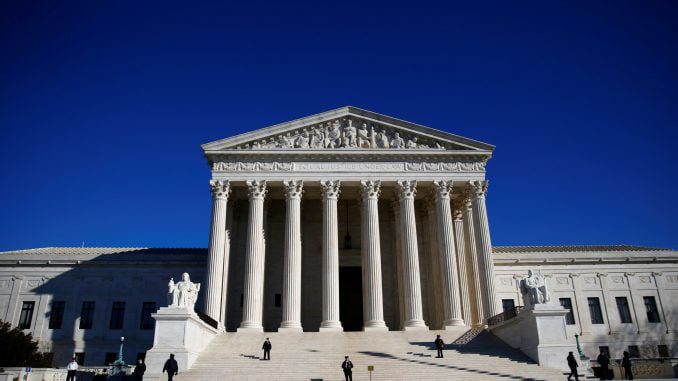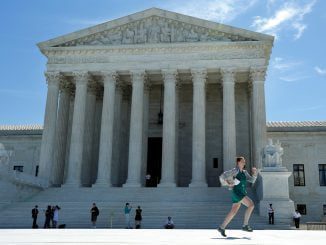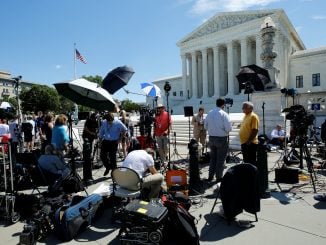
WASHINGTON, D.C. – The U.S. Supreme Court on Tuesday handed Donald Trump one of the biggest victories of his presidency, upholding his travel ban targeting several Muslim-majority countries.
The 5-4 ruling, with the court’s five conservatives in the majority, ends for now a fierce fight in the courts over whether the policy represented an unlawful Muslim ban. Trump can now claim vindication after lower courts had blocked his travel ban announced in September, as well as two prior versions, in legal challenges brought by the state of Hawaii and others.
The court held that the challengers had failed to show that the ban violates either U.S. immigration law or the U.S. Constitution’s First Amendment prohibition on the government favoring one religion over another.
Writing for the court, Chief Justice John Roberts said that the government “has set forth a sufficient national security justification” to prevail.
“We express no view on the soundness of the policy,” Roberts added.
The ruling affirmed broad presidential discretion over who is allowed to enter the United States. It means that the current ban can remain in effect and that Trump could potentially add more countries. Trump has said the policy is needed to protect the country against attacks by Islamic militants.
The current ban, announced in September, prohibits entry into the United States of most people from Iran, Libya, Somalia, Syria and Yemen. The Supreme Court allowed it to go largely into effect in December while the legal challenge continued.
The challengers have argued the policy was motivated by Trump’s enmity toward Muslims and urged courts to take into account his inflammatory comments during the 2016 presidential campaign. Trump as a candidate called for “a total and complete shutdown of Muslims entering the United States.”
The travel ban was one of Trump’s signature hardline immigration policies that have been a central part of his presidency and “America First” approach. Trump issued his first version just a week after taking office, though it was quickly halted by the courts.
In a separate ruling, the high court also struck down a California law requiring clinics that counsel women against abortion to notify clients of the availability of abortions paid for by the state, ruling it violated the free speech rights of these Christian-based facilities.
The Supreme Court legalized abortion in 1973, and while the broader issue of abortion rights was not at issue in the case, the 5-4 ruling represented a significant victory for abortion opponents who operate these kinds of clinics – called crisis pregnancy centers – around the country.
The court’s five conservative justices were in the majority in the ruling authored by Justice Clarence Thomas, with the four liberals dissenting.
Crisis pregnancy centers have said they offer legitimate health services but that it is their mission to steer women with unplanned pregnancies away from abortion.
There are roughly 2,700 crisis pregnancy centers in the United States, including around 200 in California, according to abortion rights advocates, vastly outnumbering abortion clinics. California officials said some of the centers mislead women by presenting themselves as full-service reproductive healthcare facilities, going so far as to resemble medical clinics, down to lab coats worn by staff.
California’s Reproductive FACT Act, passed by a Democratic-led legislature and signed by Democratic Governor Jerry Brown in 2015, required centers licensed by the state as family planning facilities to post or distribute notices that the state has programs offering free or low-cost birth control, prenatal care and abortion services. The law also mandated unlicensed centers that may have no medical provider on staff to disclose that fact.



